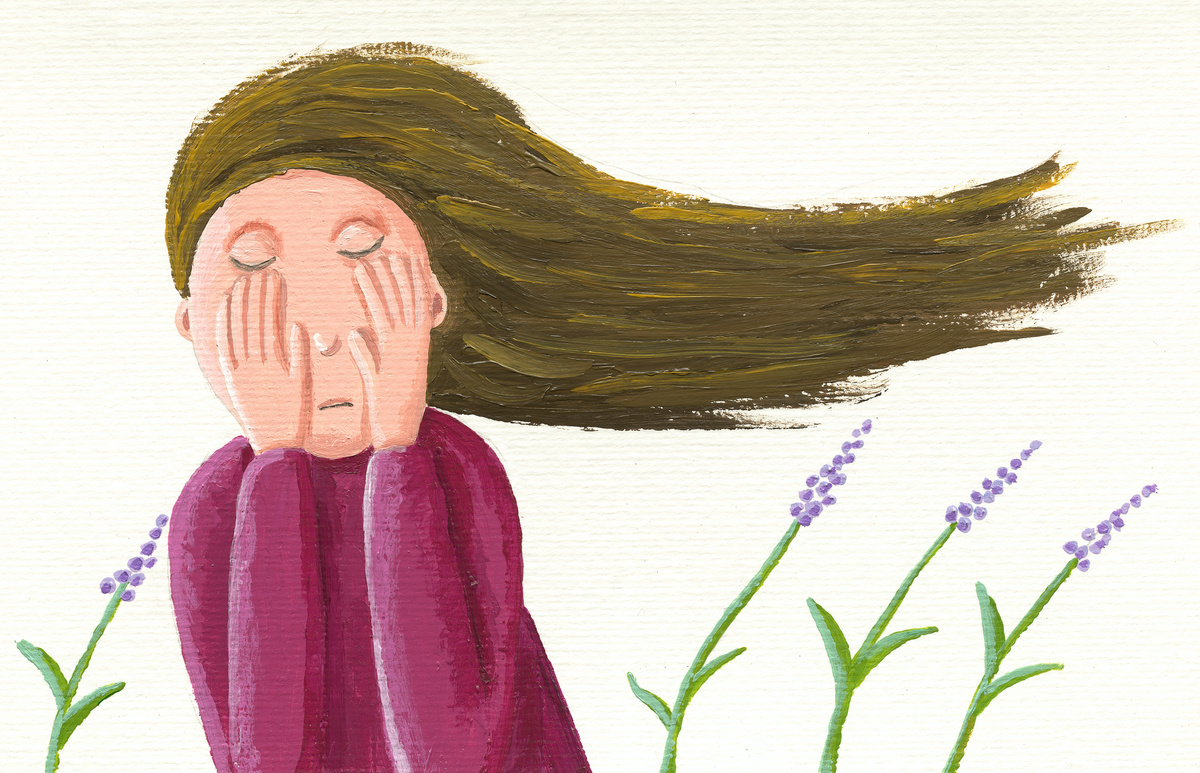Table of contents
What is abandonment syndrome?

Known as monophobia or autophobia, the fear of abandonment is something more common than one can imagine. Characterized by an intense fear of being alone that when not dosed can generate serious disorders, this dysfunction affects everyday life significantly due to its connection with anxiety.
Thus, when the individual sees himself in some situation that can lead him to loneliness, he begins to feel anxious and to suffer for the possibility of being abandoned. In view of this, the person who suffers from monophobia can end up developing relationships of emotional dependence.
Throughout the article, more details about abandonment syndrome will be commented on. If you want to know more about it, continue reading the article.
Symptoms of abandonment syndrome

The abandonment syndrome presents several recognizable symptoms, which allow those who suffer with the dysfunction to identify it and seek for professional help. Among these symptoms are distress, aggressiveness, difficulty to trust people and self-depreciation.
More details about the symptoms of abandonment syndrome will be commented below. If you want to know more about it, continue reading the article.
Distress and aggression
Monophobes are constantly distressed by the fear of being left by their partners. This causes them to begin to "suffer in anticipation" at the possibility, even though they have nothing concrete to support their theory that they will be abandoned.
All this process tends to trigger the aggressiveness of the people who suffer with the dysfunction. Thus, they start thinking that they should abandon their partners before being abandoned to avoid the suffering that being alone will certainly cause in their lives.
Unlimited demands
Unlimited demands are quite common in monophobic people. This is a way to establish dominance and make the partner always comply with their wishes. However, this process is not easy for the person suffering from abandonment syndrome because it is something unconscious.
In fact, she doesn't even know that she is demanding too much from her partners because she is not aware of how much affection and effort she demands from him to stay by her side. Therefore, it is something that causes damage to both parts of the relationship.
Can't see the other person's feelings
Besides the issue of demands, monophobes can show contempt for the feelings of others. Since they don't know how to deal with their own and don't even understand that they are asking too much of people, they end up not seeing what this behavior causes in those around them. Thus, they are people who are insensitive to the suffering they cause.
They can become tyrants if they believe they are not getting what they should. However, they never speak openly about their desires and expect those around them to be able to guess what would make them happy.
Trusts no one
Distrust can also be understood as a symptom of the abandonment syndrome. This happens because as the monophobe lives under constant distress of being left by people, he cannot establish trust because he believes that at any moment he will be betrayed with abandonment.
This type of belief tends to generate paranoid behavior. Thus, people who suffer from the syndrome think that others are always trying to deceive them with their words and may end up considering all attitudes directed at them, even the kindest ones, as attempts at deception.
Demands punctuality in being attended
Punctuality is something that is very important for monophobic people, whether we are talking about dates with their partners or attendance situations, such as in doctors' offices. Needing to wait for someone to arrive somewhere, especially if they are alone, is something that triggers a feeling of anxiety.
Thus, this feeling turns into the certainty that her partner will not show up and she will be exposed in the eyes of people who are in the same environment as someone who has been abandoned. A situation like this can easily make the monophobe become someone who is vindictive.
You're never satisfied
A person with abandonment syndrome constantly needs his partner to reaffirm his love for him. And even if he is willing to give her more and more elaborate proof of this feeling all the time, this will not be enough. Monophobia makes people unable to feel satisfied.
Therefore, once the monophobe realizes that his partner meets his demands and does everything to show his affection, what he will do is ask for more and more to try to satisfy himself.
Self-depreciation
People who suffer from abandonment syndrome generally have self-esteem problems and cannot see their own qualities. This is exactly why they need so much external validation, whether from their partners or family members. In addition, they become demanding to disguise their own self-deprecation.
Because they are constantly putting themselves down, monophobes try to do this to the people around them so that others don't realize that they don't actually have a good self-image.
Too much dependency
For a person who suffers from abandonment syndrome, dependency can easily arise. Their relationships are always ruled by this characteristic since they are afraid of being left by the people they love precisely because they need them to feel validated - even though this is never actually effected given their dissatisfaction.
This is also why monophobes make it a point to know everything about their partners' lives and insert themselves into every detail of it. However, while doing this, they keep their life as a secret.
Explosiveness
Explosive situations are quite common in people with monophobia. In general, they stem from desperation. Whenever they feel closer to being left, they adopt this behavior to try to disguise their fear of what they believe will happen. In addition, if someone tries to console the monophobe, he or she may become aggressive.
These scenarios can still trigger cries of self-devaluation, since showing their dread so explicitly will make the person with abandonment syndrome feel inferior to others for exposing their needs so openly.
Jealousy
Jealousy is one of the symptoms of abandonment syndrome and highlights individuals who see others as people who exist to satisfy their social needs. Therefore, these people cannot have moments beside others. This is a selfish movement that disregards the will of others.
Thus, in the case of love relationships, even if those who suffer from the syndrome can understand that their partner has an independent life, this is relegated to the background before their needs, since the role of the partner is only to meet their demands.
Rabies
Faced with the jealousy caused by monophobia, those who suffer from this dysfunction tend to feel a lot of anger. Therefore, their love relationships are based on a love-hate relationship with their partner. Although he is a person for whom the abandonment syndrome sufferer has positive feelings, at the same time he starts to feel hatred due to the fear of being left aside.
It is worth mentioning that there is some guilt involved in this process of hating the partner. However, it is minimal. What prevails is the need to have someone around.
Seizure
People who suffer from abandonment syndrome are in a constant state of alert. This is because they can not imagine when they will be left and therefore always feel apprehensive about this issue. Since in most situations there is no clear sign of this, monophobes become agitated people who are in constant discomfort.
Due to the facts highlighted, your body may go through changes. In general, it opens up room for imaginary illnesses to arise due to feelings of apprehension.
Causes of abandonment syndrome

It is possible to detect the causes of abandonment syndrome through some registration causes, which can be properly identified by a psychologist or psychoanalyst. Thus, from this identification one can better understand what makes the person feel so afraid of being abandoned by others.
Below, some causes of abandonment syndrome will be addressed. If you want to know more about it, continue reading the article.
Traumas
Traumas can be considered the main catalyst for monophobia. In general, they are linked to the period of childhood, in which the child deals with his first abandonment and because he does not have the necessary tools to process it, he cannot overcome the experience. Then, as he tries to repress the memory in order not to suffer, the negative effect accumulates.
Thus, this has repercussions in adult life and can trigger the abandonment syndrome. Therefore, it is very important to follow up with a psychologist so that the traumas can be properly treated.
Anxiety
Anxiety is a complex and difficult subject to approach. However, it is directly linked to monophobia and can be one of the main reasons for the emergence of this dysfunction. Usually this happens because the fear of being abandoned can be reproduced during an anxiety picture regardless of its form.
Thus, the relationship between the two things is quite ambiguous, since both can be placed either as a cause or a consequence of the situation. What matters is that there is a tension that needs to be resolved so that the person is no longer afraid of being alone.
Emotional immaturity
It is common for people to feel desperate at the possibility of being left when their emotional is shaken in some way or even has not been fully developed. In scenarios where the partner shows himself as a kind of emotional comfort to the other areas of life, this can become even more serious.
In addition, on the issue of emotional immaturity it is important to emphasize the difficulty of honest dialogue arising from abandonment syndrome, which can end up creating an unnecessary distance between the two people.
How to treat abandonment syndrome

Treatment for abandonment syndrome is an exercise and should be done with the help of a psychologist. It consists of recognizing one's own positive abilities. Therefore, building confidence is the main point of this treatment and the best way to achieve psychological well-being. Therefore, there are several techniques that can be used.
Below, more details regarding some of them will be commented. If you want to know more about it, continue reading the article.
Self Love
Building self-love is a difficult process. Having a good self-image, regardless of others' judgments, is a challenge that many people face constantly. This creates doubts about who you really are and makes relationships a kind of crutch.
Therefore, to treat monophobia, self-love needs to be cultivated. It is only through it that the individual will have more confidence to deal with life situations and will not depend on anyone else to be happy.
Family support
Family members of a person suffering from monophobia play a key role in their treatment. This is because they need to find a way to encourage the person to see themselves differently and also to influence their perception of themselves to strengthen their self-esteem.
Through this she will be able to let go of the destructive behaviors she adopts during her crises and thus make the individual's life a little more amenable. Soon, she ends up improving the life of the family as a whole.
Hypnotherapy
Hypnotherapy is usually highly recommended to deal with cases of abandonment syndrome. Because it can promote the strengthening of some positive aspects and decrease the strength of the negative ones, it tends to make those who suffer from monophobia able to control their impulses a little more.
This happens as hypnotherapy promotes the idea that you need to believe in what you are sure of and not just in assumptions. Therefore, you need to be stronger than the things you feed into your mind.
Therapy
Without a doubt, therapy is essential to treat abandonment syndrome. There are several different options of psychological treatments that can help in the sense of weakening the maladaptive schemes of those who suffer with this dysfunction and strengthening their healthy characteristics.
Therefore, once the symptoms of the syndrome are identified, the first step to resolving this issue is to seek a comprehensive consultation with a therapist. He will be able to analyze your personal history and then realize the maladjustments in your behavior so that he can treat them and thus mitigate the abandonment syndrome.
Is there a way to get rid of abandonment syndrome for good?

Getting rid of abandonment syndrome for good is not something possible, since it is a psychological process and for which there is no medication or simple treatment. Therefore, choosing a way to deal with these issues, whether it is therapy or any other tool, is essential because it will help keep the symptoms of monophobia under control.
From this control the person suffering with the dysfunction will have their thinking and perception of themselves controlled. Therefore, they will know how to dose their reactions and their fear of being left. This will bring a significant improvement to their quality of life and will prevent them from being taken by the fear of being alone.

